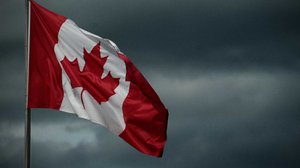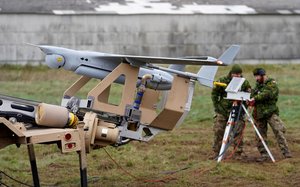So, there is no doubt that the US efforts to reset its relationship with its allies and adversaries alike has caused a lot of confusion, stress and upset for Canadians.
We have reached the point where the payoff that comes from running the world is no longer worth the cost, and the United States has abandoned the system that it established. And it is facing a choice.
It either moves at breakneck speed to set up a new global order that works to preserve its power in the international system, or it readies itself to live in a world where the terms of its existence are dictated to it by China.
So, if you want to understand economic war, you need to begin by understanding the difference between economic statecraft and economic war.
All states use economic tools and activities to regulate and manage their relationships with other states. Sometimes they use it to apply pressure. Sometimes they use it as an inducement. And oftentimes, there is sort of an interplay of the carrot-and-stick approach.
And when you’re thinking about economic statecraft, you’re thinking about tariffs, sanctions, investment protections, free trade agreements— all the things you learn about in a standard economics class.
Economic statecraft is the use of legitimate, standard economic tools in ways that are visible to everyone and that have a legal basis behind them. When I impose a sanction on you, chances are good my ambassador is going to come and talk to you and explain there’s a sanction on you and why it’s on you. I’m also going to release documentation for everybody to see, explaining the sanction and the basis in law. What is not legitimate is economic warfare.
In the case of economic warfare, you have those same activities but layered into the mix are tools that are well outside the bounds of acceptable statecraft and that are used in ways that are typically covert, if not also illegal.
Canada knows that very well. When Canada, for example, acted on its obligations under international law to arrest Meng Wanzhou, the CFO of Huawei, on the basis of a legitimate extradition request from the United States, China responded by imposing an import ban on our canola sector— caused billions of dollars of damage. China claimed it was because it had found a pest in our canola, and the pest mysteriously disappeared shortly after Meng Wanzhou left Canada.
It is clearly well outside the bounds of acceptable behaviour, it clearly has no legal basis and it clearly is done in a covert way. China will also weaponize its own citizens. China will direct its corporations to buy a foreign startup company at 10 times its market value. That is not a commercial transaction. More often than not, if you trace what that company specializes in to what gaps exist in the capacities of the People’s Liberation Army, you will find that what that actually is, is a military transaction.
You don’t see that with legitimate states. Canada does not order its corporations to make non-commercial decisions in order to build up the Canadian Armed Forces. We do not put our citizens in jail if they refuse to steal IP that we can give to the Canadian Armed Forces, and we do not use cultural associations in order to manipulate and intimidate foreign populations.
It is really important not to conflate the United States’ tariff measures with China’s economic warfare. These are not the same things. What the United States is doing is advanced economic statecraft. It is using a standard routine tool in ways that are overt and have a basis in law. That basis may get challenged one day, but there at least is a basis, and there is a mechanism for challenging it.
What China does is economic warfare, and it’s really important that people understand the difference, because if we don’t understand the difference between economic statecraft and economic warfare, we are at high risk of making really, really bad decisions.
We will overemphasize what the United States is doing. We will ascribe motives to the United States that are best ascribed instead to China, and we will underplay the Chinese threat because we will not understand how much more serious and grave and egregious it is compared to what the United States is doing.


